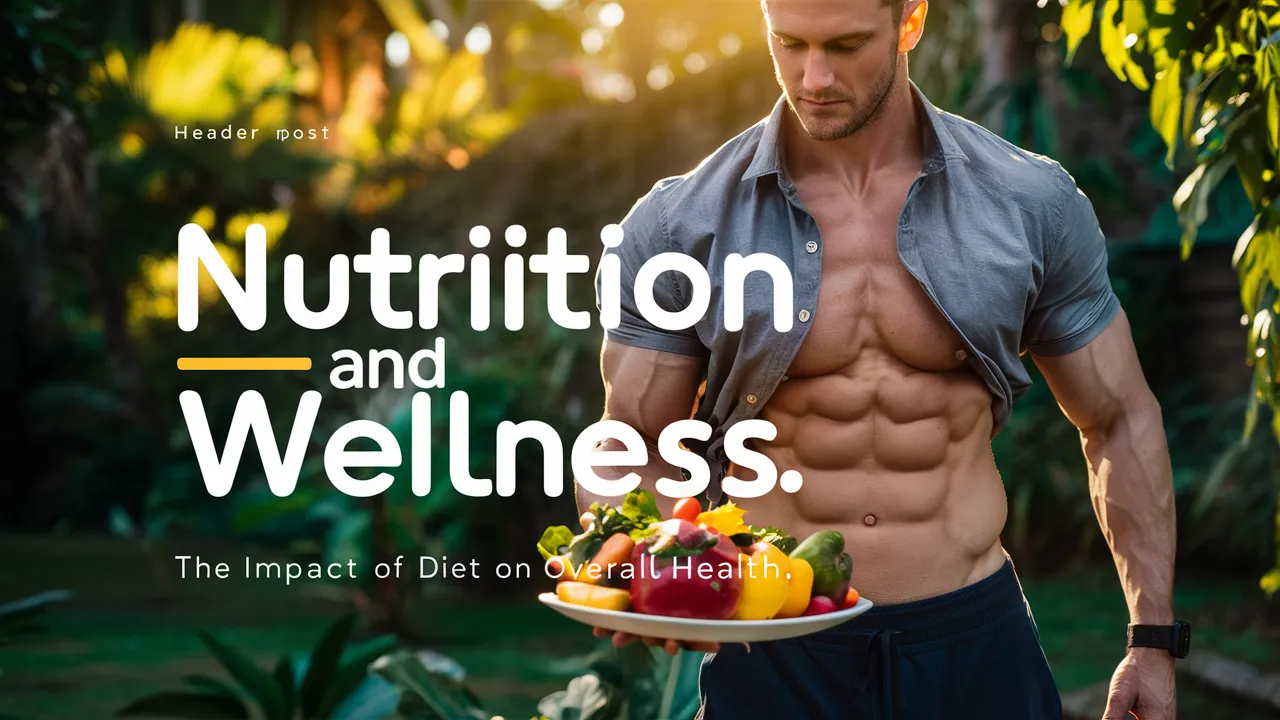
Introduction to the Diet and health
In this article, you will find out the Impact of Diet on Health and then read about him. Ever wondered why what you eat is so important? Nutrition and wellbeing are fundamental components of living a healthy, joyful life. This article investigates the tremendous impact of eating on overall health, offering tips on how to make better food choices for a happier, healthier you.
Understanding Nutrition and Wellness
Definition of Nutrition
Nutrition is the process by which our bodies absorb and use food ingredients required for growth, energy, and overall health. It’s not just about eating; it’s about eating well.
Definition of Wellness
Wellness encompasses physical, mental, and social well-being. It is more than just avoiding illness; it is also taking a proactive attitude to health.
The Role of a Balanced Diet
Macronutrients: Proteins, Carbs, Fats
Proteins are the structural components of muscles and tissues. Carbohydrates supply energy, but lipids help cells function and protect organs.
Micronutrients: Vitamins and Minerals
Vitamins and minerals are essential for illness prevention and long-term health. They support bone health, immunological function, and wound healing.
Impact of Diet on Physical Health
Weight Management
A well-balanced diet helps to maintain a Healthy diet for weight loss weight, lowering the risk of obesity-related diseases such as diabetes and cardiovascular disease.
Immune System Support
Vitamins C, D, and zinc boost the immune system, allowing the body to fight off infections.
Chronic Disease Prevention
A diet high in fruits and vegetables, whole grains, and lean proteins can help avoid chronic illnesses including hypertension, heart disease, and some malignancies.
Impact of Diet on Mental Health
Diet and mood
Certain meals can improve your mood. Fish have omega-3 fatty acids, and leafy greens include folate, both of which have been shown to boost mental wellness.
Cognitive function
Antioxidants, flavonoids, and omega-3 fatty acids can help preserve the brain and improve cognitive function, lowering the risk of neurodegenerative illnesses.
Stress and Anxiety Reduction
Magnesium-rich foods, such nuts and seeds, can help relieve tension and anxiety.
The Connection Between Gut Health and Overall Well-being
Importance of Gut Microbiota
Your gut health affects everything from digestion to emotions. A healthy gut flora is critical for general health.
Probiotics and prebiotics
Probiotics (good bacteria) and prebiotics (food for these bacteria) help keep the gut How to start a healthy diet. Yogurt, kefir, and fiber-rich meals are great sources.
Hydration: A Commonly Overlooked Aspect of Nutrition
Benefits of Staying Hydrated
Proper hydration promotes digestion, nutrition absorption, and skin health.
Signs of Dehydration
Symptoms include dry mouth, tiredness, and dark urine. Staying hydrated is essential for overall health.
The Function of Superfoods in a Healthy Diet
What are Superfoods?
Superfoods are nutrient-dense foods said to be particularly helpful to health and well-being.
Examples & Benefits
Blueberries, spinach, and quinoa are high in vitamins, minerals, and antioxidants, which promote overall health.

Dietary Choices and Lifestyle
Vegetarian and vegan diets
These diets emphasize plant-based meals, which can lower the risk of chronic illnesses and aid in weight control.
Mediterranean diet
This Diet and chronic disease prevention emphasizes fruits, vegetables, whole grains, and healthy fats, which are believed to improve heart health.
Keto Diet
A high-fat, low-carb diet that promotes weight reduction and metabolic wellness.
Read More: 2024 Fashion Trends: Hottest Styles to Watch
The Importance of Meal Planning and Preparation
Benefits of Meal Planning
Meal planning saves time, lowers stress, and assures well-balanced meals.
Tips for Effective Meal Prep
Plan your week’s meals, prep items ahead of time, and properly store meals to stay organized and eat healthily.
The Effects of Processed Foods and Sugar
Dangers of Processed Food
Processed meals frequently include excessive fats, carbohydrates, and preservatives, which contribute to a variety of health problems.
How to Reduce Your Sugar Intake
Choose natural sweeteners such as honey or stevia, and be aware of hidden sugars in processed meals.
Supplements: Necessary or not?
When Supplements are Beneficial
Supplements can assist with deficiencies, but they should not be used instead of a well-balanced diet.
Risks of Overreliance on Supplements
Excessive supplement consumption might lead to imbalances and Can diet improve mental health risks. It is preferable to receive nutrients via food whenever feasible.
Personalizing Your Diet
Importance of Individualized Nutrition Plans
Everyone’s dietary demands are unique. Customize your diet to meet your individual health objectives and conditions.
Working with nutritionists and dietitians
Professionals can assist you in developing a personalized nutrition plan that is tailored to your specific needs and lifestyle.
Conclusion
Your food is an extremely effective strategy for preserving overall health and fitness. Making smart eating choices may enhance both your physical and emotional health. Remember that it is about growth, not perfection. Start small, make long-term improvements, and enjoy the path to a healthy self. For the complete list of Balanced diet benefits, click here Konnect Newz
People also ask
How can nutrition influence health?
Diet influences health by delivering needed nutrients that support body activities, keep energy levels stable, and help avoid chronic illnesses.
What are the advantages of a healthy diet?
A nutritious diet may improve general health, aid in weight control, lower the risk of chronic illnesses, and boost energy and mood.
Can a diet enhance mental health?
A well-balanced diet high in vitamins, minerals, and antioxidants can boost mental health by alleviating symptoms of despair and anxiety.
How can I start a healthy diet?
Begin a healthy diet by include more fruits, vegetables, whole grains, and lean meats in your meals, while limiting processed foods and sugary drinks.
What are the main components of a healthy diet?
A balanced diet should consist of a mix of fruits and vegetables, whole grains, lean meats, and healthy fats.







